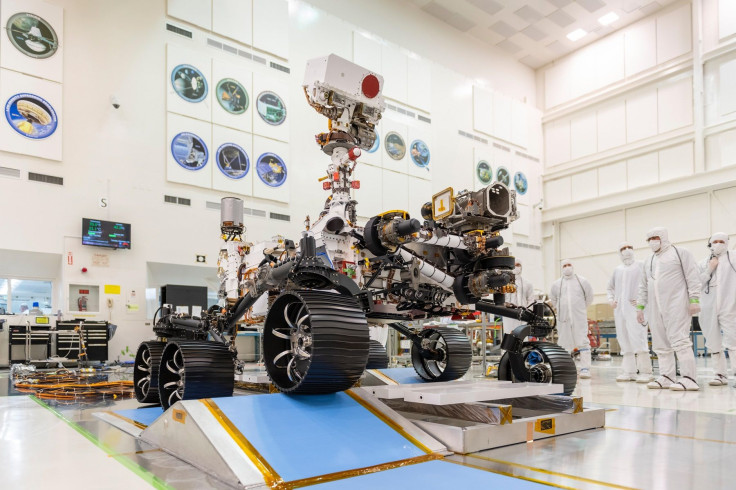NASA, ESA Finalize Plans For Mars Sample-Return Mission
KEY POINTS
- NASA and ESA unveiled details of the Mars sample-return mission
- NASA and the ESA will handle different stages of the mission
- The samples will be analyzed for traces of water or alien life
NASA and the European Space Agency (ESA) explained how they would return the samples that will be collected on Mars to Earth. According to the two agencies, the entire mission will be composed of several challenging stages.
The two agencies’ sample-return mission will be kicked off by the launch of NASA’s Perseverance rover for the Mars 2020 mission. The rover is expected to land on the Red Planet in February next year.
According to NASA, the target site of the Mars 2020 mission is the Jezero crater, which is believed to have once been flooded with liquid water. Using its instruments, Perseverance will drill in various areas within the crater to collect rock and soil samples.
These samples will be stored in special tubes that will be kept inside a safe compartment. They will stay on Mars as Perseverance carries on with its other mission objectives. Once NASA and the ESA are ready, they will send a new mission to Mars to retrieve the samples.
For the next stage of the sample-return mission, the ESA will deploy a small rover on Mars. It will rendezvous with Perseverance to collect the tubes containing the samples. The rover will then board a Mars ascent vehicle developed by NASA, Nature reported.
Basically, this vehicle will function like a rocket to launch the samples into Martian orbit. Once in space, the ESA will send another mission to pick up the samples. This mission will involve sending a spacecraft that will collect the orbiting samples and head back to Earth.
If everything goes smoothly for the agencies, ESA’s sample-return spacecraft will reach the Martian orbit sometime in 2028. It is expected to return to Earth with the samples in 2031.
As noted by NASA, the samples will be analyzed by teams of scientists to see if they contain traces of water. The scientists will also check if the rock and soil samples have signs of alien microbial life.
“What we can learn about Mars in our own laboratories is going to be fantastic,” Michael Meyer, the lead scientist for Mars’ exploration program said in a statement.

© Copyright IBTimes 2024. All rights reserved.





















